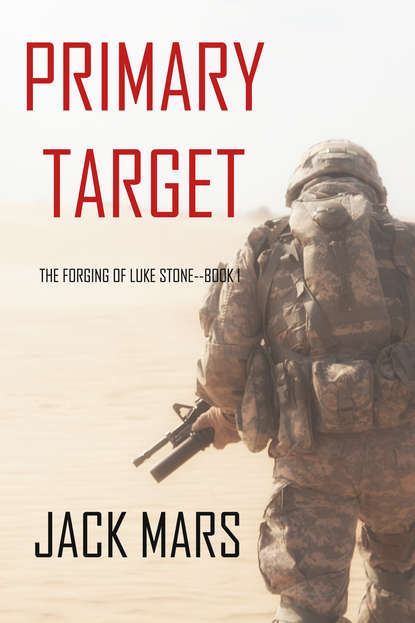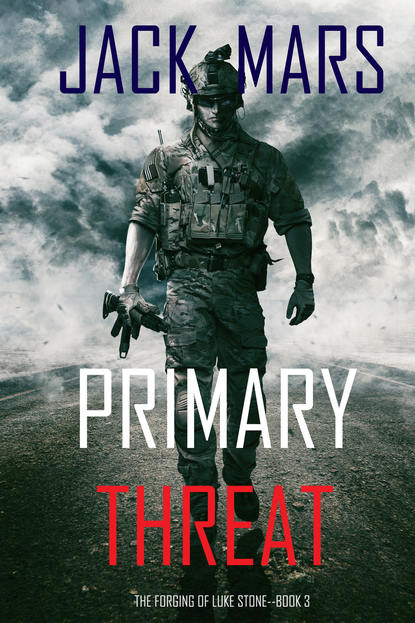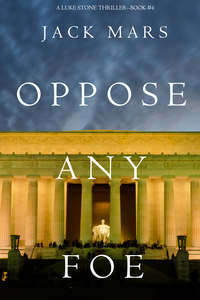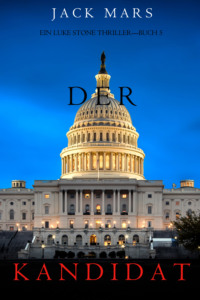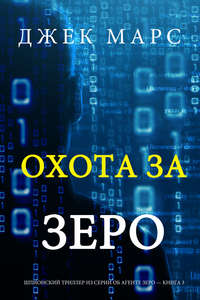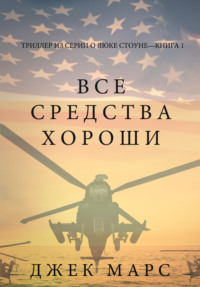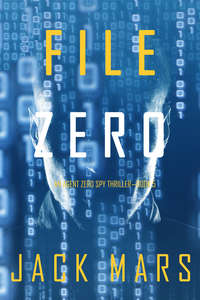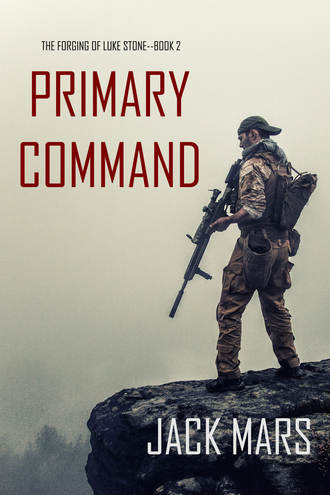
Полная версия
Primary Command
President Barrett stared at the general. He took a breath. That didn’t seem bad at all. What was all the hubbub about?
A civilian submarine was doing archaeological exploration in international waters. The Russians were rebuilding their strength after a disastrous fifteen years or so, and they wanted the Black Sea to be their own private lake again. So they got irritated and overstepped. All right. Lodge a complaint with the embassy and get the scientists back. Maybe even get the sub back, too. It was all a misunderstanding.
“Forgive me, General, but this sounds like something for the diplomats to work out. I appreciate being kept informed of developments like this, but it seems like it’s going to be easy to skip the crisis on this one. Can’t we just have the ambassador—”
“Sir,” Stark said. “I’m afraid it’s a bit more complicated than that.”
It instantly annoyed Barrett that Stark would interrupt him in front of a room full of people. “Okay,” he said. “But this better be good.”
Stark shook his head and sighed again. “Mr. President, Poseidon Research International is a company funded and run by the Central Intelligence Agency. It’s a front operation. The submersible in question, Nereus, was masquerading as a civilian research vessel. In fact, it was on a classified mission under the aegis of both the CIA Special Operations Group and the Joint Special Operations Command. The three men captured include a civilian with high-level security clearances, a CIA special agent, and a Navy SEAL.”
For the first time in more than a month, David Barrett felt an old familiar sensation rising within him. Anger. It was a feeling he enjoyed. They sent a submarine on a spy mission in the Black Sea? Barrett didn’t need the map on the screen to know the geopolitics involved.
“Richard, pardon my French, but what in the hell were we doing with a spy submarine in the Black Sea? Do we want to have a war with the Russians? The Black Sea is their backyard.”
“Sir, with all respect intended, those are international waters open to navigation, and we intend to keep them that way.”
Barrett shook his head. Of course we did. “What was the sub doing there?”
The general coughed. “It was on a mission to tap into Russian communications cables at the bottom of the Black Sea. As you know, since the collapse of the Soviet Union, the Russians lease the old Soviet naval port at Sebastopol from the Ukrainians. That port was the mainstay of the Soviet fleet in the region, and serves the same purpose for the Russian Navy. As you can imagine, the arrangement is an awkward one.
“Russian telephone lines and computer-based communications cables run across Ukrainian territory in Crimea to the border with Russia. Meanwhile, tensions have been rising between Russia and Georgia, just to the south of there. We are concerned a war could break out, if not now, then in the near future.
“Georgia is very friendly with us, and we’d like for both them and Ukraine to join the NATO alliance one day. Until they do join NATO, they are vulnerable to a Russian attack. Recently, the Russians laid communications cables along the sea floor from Sebastopol to Sochi, completely circumventing the cables that run across Crimea.
“The mission of the Nereus was to find the location of those cables, and if possible, tap into them. If the Russians decide to attack Georgia, the fleet at Sebastopol is going to know in advance. We’re going to want to know that, too.”
Stark paused.
“And the mission was a total failure,” David Barrett said.
General Stark didn’t fight it.
“Yes, sir. It was.”
Barrett had to give him credit for that. A lot of times, these guys came in here and tried to spin shit into gold right in front of his eyes. Well, Barrett wasn’t having it anymore, and Stark got a couple of points for not even trying.
“Unfortunately, sir, the failure of the mission is not really the major issue we’re facing. The issue we need to deal with at this time is that the Russians have not acknowledged they’ve taken the sub. They also refuse to respond to our inquiries as to its whereabouts, or to the conditions faced by the men who were on board. At the moment, we’re not even sure if those men are alive or dead.”
“Do we know for a fact that they took the sub?”
Stark nodded. “Yes, we do. The sub is outfitted with a radio locator beacon, which has been turned off. But it is also outfitted with a tiny computer chip that broadcasts its location to the satellite global positioning system. The chip only works when the sub is at the surface. The Russians appear not to have detected it yet. It’s embedded deep within the mechanical systems. They will have to take the entire sub apart, or destroy it, to render the chip inoperable. In the meantime, we know they’ve raised the sub to the surface, and have taken it to a small port several miles south of Sochi, near the border with the former Soviet state of Georgia.”
“And the men?” Barrett said.
Stark half nodded and half shrugged. “We believe they’re with the ship.”
“No one knows this mission took place?”
“Just us, and them,” Stark said. “Our best guess is there may have been a recent intelligence leak among the mission participants, or within the agencies involved. We hate to think that, but Poseidon Research has operated out in the open for two decades, and there has never been any indication that its security was breached before.”
An odd thought occurred to David Barrett then.
What’s the problem?
It was a secret mission. The newspapers didn’t know anything about it. And the men involved well knew the risks they were taking. The CIA knew the risks. The Pentagon brass knew the risks. On some level, they must have known how foolish it was. Certainly, no one had asked the president of the United States for permission to carry out the mission. He was only hearing about it after disaster had struck.
That was one of his least favorite aspects of dealing with the so-called intelligence community. They tended to tell you things after it was already too late to do anything about them.
For an instant, he felt like an angry dad who has just learned his teenage son was arrested for vandalism by the local town cops. Let the kid rot in jail for the night. I’ll pick him up in the morning.
“Can we leave them there?” he said.
Stark raised an eyebrow. “Sir?”
Barrett looked around the room. All eyes were on him. He was acutely sensitive to the two dozen pairs of eyes. Young eyes in the back rows, wizened eyes with crow’s feet around the table, owlish eyes behind glasses. But the eyes, which normally showed such deference, now seemed to look at him with something else. That something might be confusion, and it might be the beginning of…
Pity?
“Can we leave them there, and quietly negotiate their release? That’s what I’m asking. Even if it takes some time? Even if it takes a month? Six months? It seems like negotiations would be one way to avoid yet another incident.”
“Sir,” the general said. “I’m afraid we can’t do that. The incident has already happened.”
“Right,” Barrett said.
And just like that, he snapped. It was quiet, like a twig snap. But he’d had enough. The man had contradicted him one time too many. Did he even realize who he was speaking to? Barrett pointed at the general with a long finger.
“The horse is already out of the barn. Is that what you’re telling me? Something has to be done! You and your shadow puppets made a stupid play, out on the edge all by yourselves, and now you want the official, popularly elected government to bail you out of your mess. Again.”
Barrett shook his head. “I’m sick of it, General. How does that sound to you? I can’t stand it anymore. All right? My instinct here is to leave those men with the Russians.”
David Barrett scanned the eyes in the room again. Many of them were looking away now, at the table in front of them, at General Stark, at shiny reports bound with plastic ring binders. Anywhere but at their president. It was as if he had made a particularly ripe-smelling boo-boo in his pants. It was if they knew something he didn’t know.
Stark instantly confirmed the truth of that.
“Mr. President, I wasn’t going to bring this up, but you leave me no choice. One of the men on that crew has had access to intelligence of the most sensitive nature. He has been an integral part of covert operations on three continents for more than a decade. He has encyclopedic knowledge of American spy networks inside Russia and China for starters, not to mention Morocco and Egypt, as well as Brazil, Colombia, and Bolivia. In a few cases, he established those networks himself.”
Stark paused. The room was dead quiet.
“If the Russians torture this man during interrogation, the lives of dozens of people, many of them important intelligence assets, may as well be forfeit. Worse than that, the information those people have access to will in turn become transparent to our opponents, leading to even more deaths. Extensive networks, which we’ve spent years building, could be rolled up in a short period of time.”
Barrett stared at Stark. The gall of these people was breathtaking.
“What was that man doing in the field, General?” Acid dripped from every word.
“As I indicated, sir, Poseidon Research International had been operating for decades under no obvious suspicion. The man was hiding in plain sight.”
“Hiding…” Barrett said slowly. “In plain sight.”
“That’s what it’s called, sir. Yes.”
Barrett said nothing in response. He just stared. And Stark finally seemed to realize that his explanations were not nearly good enough.
“Sir, and again this is with all respect due, I had nothing to do with the planning or execution of this mission. I didn’t know anything about it until this morning. I’m not part of Joint Special Operations Command, nor am I employed by the Central Intelligence Agency. I do, however, have complete faith in the judgment of the men and women who do…”
Barrett waved his hands over his head, as if to say STOP.
“What are our options, General?”
“Sir, we have only one option. We need to rescue those men. As fast as we can, if possible before interrogations begin. We need to scuttle that sub as well, and that’s crucial. But this one individual… we need to either rescue him, or eliminate him. As long as he’s alive and in Russian hands, we have a potential disaster unfolding.”
It was a moment before David Barrett spoke again. The general wanted to rescue the men, which suggested a secret mission. But the reason they were captured in the first place was a security breach. There’s been a security breach, so let’s plan more secret missions? It was circular thinking at its finest. But Barrett hardly felt the need to point that out. Hopefully, it was clear to even the numbest imbecile in this room.
An idea occurred to him then. There was going to be a new mission, and he was going to assign it, but not to the CIA or the Pentagon. They were the ones who had brought this problem about in the first place, and he could hardly trust them to resolve it. It would be stepping on toes to give the job to someone else, but it was clear that they had brought this on themselves.
He smiled inwardly. As painful as this situation was, it also presented him with an opportunity. He had the chance here to seize some of his power back. It was time to take the CIA and the Pentagon, the NSA, the DIA, all of these well-established spy agencies, out of the game.
Knowing what he was about to do made David Barrett feel like the boss again, for the first time in a long while.
“I agree,” he said. “The men should be rescued, and as quickly as possible. And I know exactly how we’re going to do it.”
CHAPTER THREE
10:55 a.m. Eastern Daylight Time
Arlington National Cemetery
Arlington, Virginia
Luke Stone stared down the trench at Robby Martinez. Martinez was screaming.
“They’re coming through on all sides!”
Martinez’s eyes were wide. His guns were gone. He had taken an AK-47 from a Taliban, and was bayoneting everyone who came over the wall. Luke watched him in horror. Martinez was an island, a small boat fighting a wave of Taliban fighters.
And he was going under. Then he was gone, under the pile.
It was night. They were just trying to live until daybreak, but the sun refused to rise. The ammunition had run out. It was cold, and Luke’s shirt was off. He had ripped it off in the heat of combat.
Turbaned, bearded Taliban fighters poured over the sandbagged walls of the outpost. They slid, they fell, they jumped down. Men screamed all around him.
A man came over the wall with a metal hatchet.
Luke shot him in the face. The man lay dead against the sandbags, a gaping cavern where his face had just been. The man had no face. But now Luke had the hatchet.
He waded into the fighters surrounding Martinez, swinging wildly. Blood spattered. He chopped at them, sliced them.
Martinez reappeared, somehow still on his feet, stabbing with the bayonet.
Luke buried the hatchet in a man’s skull. It was deep. He couldn’t pull it out. Even with the adrenaline raging through his system, he didn’t have the strength left. He yanked on it, yanked on it… and gave up. He looked at Martinez.
“You okay?”
Martinez shrugged. His face was red with blood. His shirt was saturated with it. Whose blood? His? Theirs? Martinez gasped for air and gestured at the bodies all around them. “I’ve been better than this before. I can tell you that.”
Luke blinked and Martinez was gone.
In his place were row upon row of plain white gravestones, thousands of them, climbing the low green hills into the distance. It was a bright day, sunny and warm.
Somewhere behind him, a lone bagpiper played “Amazing Grace.”
Six young Army Rangers carried the gleaming casket, draped in the American flag, to the open gravesite. Martinez had been a Ranger before he joined Delta. The men looked sharp in their dress greens and their tan berets, but they also looked young. Very, very young, almost like kids playing dress-up.
Luke stared at the men. He could barely think about them. He took a deep breath. He was beat. He couldn’t remember a time—not in Ranger school, not during the Delta selection process, not in war zones—when he had been this tired.
The baby, Gunner, his newborn son… wouldn’t sleep. Not at night, and hardly in the day. So he and Becca weren’t getting any sleep, either. Also, Becca couldn’t seem to stop crying. The doctor had just diagnosed her with postpartum depression, complicated by exhaustion.
Her mom had come out to the cabin to live with them. It wasn’t working. Becca’s mom… where to begin? She had never held a job in her life. She seemed baffled that Luke left every morning to make the long commute to the Virginia suburbs of Washington, DC. She seemed even more baffled that he didn’t reappear until evening.
The rustic cabin, beautifully situated on a small bluff above Chesapeake Bay, had been in her family for a hundred years. She had been going to the cabin since she was a little girl and now acted like she owned the place. In fact, she did own the place.
She was making noises that she, Becca, and the baby should relocate to her house in Alexandria. The hardest part for Luke was that the idea was beginning to seem sensible.
He had started to indulge fantasies of arriving at the cabin after a long day, the place dead silent. He could almost watch himself. Luke Stone opens the old humming refrigerator, grabs a beer, and walks out to the back patio. He’s just in time to catch the sunset. He sits down in an Adirondack chair and…
CRACK!
Luke nearly jumped out of his skin.
Behind him, a seven-man team of riflemen had fired a volley into the air. The sound echoed across the hillsides. Another volley came. Then another.
A twenty-one-gun salute, seven guns at a time. It was an honor that not everyone merited. Martinez was a highly decorated combat veteran in two theaters of war. Dead now, by his own hand. But it didn’t have to be that way.
Three dozen servicemen stood in formation near the grave. A smattering of Delta and former Delta operators stood in civilian clothes further away. You could tell the Delta guys because they looked like rock stars. They dressed like rock stars. Big, broad, in T-shirts and blazers, khaki pants. Full beards, earrings. One guy had a wide, closely cropped Mohawk hairdo.
Luke stood alone, dressed in a black suit, scanning the crowd, looking for something he expected to find: a man named Kevin Murphy.
Near the front was a row of white folding chairs. A middle-aged woman dressed in black was comforted by another woman. Near her, an honor guard made up of three Rangers, two Marines, and an Airman carefully took the flag from the casket and folded it. One of the soldiers lowered to one knee in front of the grieving woman and presented the flag to her.
“On behalf of the president of the United States,” the young Ranger said, his voice breaking, “the United States Army, and a grateful nation, please accept this flag as a symbol of our appreciation for your son’s honorable and faithful service.”
Luke looked at the Delta guys again. One had broken away and was walking alone up a grassy hillside through the white stones. He was tall and wiry, with blond hair shaved close to his head. He wore jeans and a light blue dress shirt. Thin as he was, he still had broad shoulders and muscular arms and legs. His arms seemed almost too long for his body, like the arms of an elite basketball player. Or a pterodactyl.
The man walked slowly, in no particular hurry, as though he had no pressing engagements. He stared down at the grass as he walked.
Murphy.
Luke left the service and followed him up the hill. He walked much faster than Murphy did, gaining ground on him.
There were a lot of reasons why Martinez was dead, but the clearest reason was he had blown his own brains out in his hospital bed. And someone had brought him a gun with which to do it. Luke was about one hundred percent sure he knew who that someone was.
“Murphy!” he said. “Hold on a minute.”
Murphy looked up and turned around. A moment ago, he had seemed lost in thought, but his eyes had come instantly alert. His face was narrow, birdlike, handsome in its own way.
“Luke Stone,” he said, his voice flat. He didn’t seem pleased to see Luke. He didn’t seem displeased. His eyes were hard. Like the eyes of all Delta guys, there was a cold, calculating intelligence in there.
“Let me walk with you a minute, Murph.”
Murphy shrugged. “Suit yourself.”
They fell into step with each other. Luke slowed down to accommodate Murphy’s pace. They walked for a moment without saying a word.
“How are you doing?” Luke said. It was an odd nicety to offer. Luke had gone to war with this man. They had been in combat together a dozen times. With Martinez gone, they were the last two survivors of the worst night of Luke’s life. You would think there’d be some intimacy between them.
But Murphy didn’t give Luke anything. “I’m fine.”
That was all.
No “How are you?” No “Did your baby come?” No “We need to talk about things.” Murphy was not in the mood for conversation.
“I heard you left the Army,” Luke said.
Murphy smiled and shook his head. “What can I do for you, Stone?”
Luke stopped and gripped Murphy’s shoulder. Murphy faced him, shrugging Luke’s hand off.
“I want to tell you a story,” Luke said.
“Tell away,” Murphy said.
“I work for the FBI now,” Luke said. “A small sub-agency within the Bureau. Intelligence gathering. Special operations. Don Morris runs it.”
“Good for you,” Murphy said. “That’s what everybody used to say. Stone is like a cat. He always lands on his feet.”
Luke ignored that. “We have access to information. The best. We get everything. For example, I know you were reported AWOL in early April and were dishonorably discharged about six weeks later.”
Murphy laughed now. “You must have done some digging for that, huh? Sent a mole in to examine my personnel file? Or did you just have them email it to you?”
Luke pressed on. “Baltimore PD has an informer who’s a close lieutenant of Wesley ‘Cadillac’ Perkins, leader of the Sandtown Bloods street gang.”
“That’s nice,” Murphy said. “Police work must be endlessly fascinating.” He turned and started walking again.
Luke walked with him. “Three weeks ago, Cadillac Perkins and two bodyguards were assaulted at three a.m. while entering their car in the parking lot of a nightclub. According to the informer, just one man attacked them. A tall, thin white man. He knocked the two bodyguards unconscious in three or four seconds. Then he pistol-whipped Perkins and relieved him of a briefcase containing at least thirty thousand in cash.”
“Sounds like a daring white man,” Murphy said.
“The white man in question also relieved Perkins of a gun, a distinctive Smith & Wesson .38, with a particular slogan engraved in the grip. Might Makes Right. Of course, neither the attack, nor the theft of the money, nor the loss of the gun was reported to the police. It was just something this informer talked about with his handler.”
Murphy was not looking at Luke.
“What are you telling me, Stone?”
Luke looked ahead and noticed they were approaching the John F. Kennedy gravesite. A crowd of tourists stood along the edge of the two-hundred-year-old flagstones and snapped photos of the fire of the eternal flame.
Luke’s eye wandered to the low granite wall at the edge of the memorial. Just above the wall, he could see the Washington Monument across the river. The wall itself had numerous inscriptions taken from Kennedy’s inaugural address. A famous one caught Luke’s attention:
ASK NOT WHAT YOUR COUNTRY CAN DO FOR YOU…
“The gun Martinez used to kill himself had the inscription Might Makes Right on the grip. The Bureau traced the gun and discovered it had previously been used to commit two execution-style murders believed to be associated with the Baltimore drug wars. One was the torture killing of Jamie ‘Godfather’ Young, the previous leader of the Sandtown Bloods.”
BUT WHAT YOU CAN DO FOR YOUR COUNTRY.
Murphy shrugged. “All these nicknames. Godfather. Cadillac. Must be hard to keep track of them.”
Luke kept going. “Somehow, that gun found its way from Baltimore all the way south to Martinez’s hospital room in North Carolina.”
Murphy looked at Stone again. Now his eyes were flat and dead. They were murderer’s eyes. If Murphy had killed one man before, he had killed a hundred.
“Why don’t you get to the point, Stone? Say what’s on your mind, instead of telling me some children’s fable about drug lords and stickup men.”
Luke was so angry he could almost punch Murphy in the mouth. He was tired. He was aggravated. He was heartbroken by Martinez’s death.
“You knew Martinez wanted to kill himself…” he began.
Murphy didn’t hesitate. “You killed Martinez,” he said. “You killed the whole squad. You. Luke Stone. Killed everyone. I was there, remember? You took a mission you knew was FUBAR because you didn’t want to countermand an order from a maniac with a death wish. And this was… for what? To further your career?”
“You gave Martinez the gun,” Luke said.
Murphy shook his head. “Martinez died that night on the hill. Just like everybody else. But his body was too strong to realize that. So it needed a push.”
They stared at each other for a long moment. For an instant, in his mind’s eye, Luke was back in Martinez’s hospital room. Martinez’s legs had been shredded, and could not be saved. One was gone at the pelvis, one below the knee. He still had the use of his arms, but he was paralyzed from just below his ribcage down. It was a nightmare.
Tears began to stream down Martinez’s face. He pounded the bed with his fists.
“I told you to kill me,” he said through gritted teeth. “I told you… to… kill… me. Now look at this… this mess.”
Luke stared at him. “I couldn’t kill you. You’re my friend.”
“Don’t say that!” Martinez said. “I’m not your friend.”
Luke shook the memory away. He was back on a green hill in Arlington, on a sunny early summer day. He was alive and mostly well. And Murphy was still here, offering his version of a lecture. Not one that Luke wanted to hear.


